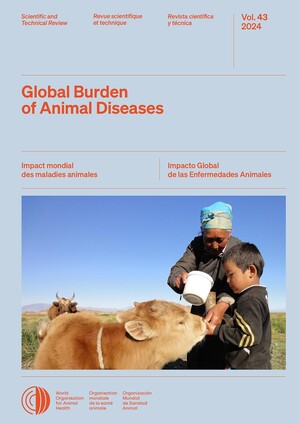
Engaging county governments for better project impact and sustainability
As the three year Feed the Future Kenya Accelerated Value Chain Development (AVCD) project winds up in September 2018, the potato value chain reports several achievements. First is the successful introduction and dissemination of new potato technologies—drought, pest and disease tolerant varieties; use of quality seed by farmers; adoption of apical rooted cuttings by seed multipliers and use of diffused light stores among others. Second, there is enhanced farmer knowledge and skills on good agronomic practices (GAPs) regarding potato production that has led to improved yields. Third, there has been capacity building for potato–based cooperative societies whose members are now empowered on business opportunities along the value chain. County governments have played a key role in the success of the project.

Farmer training in Uasin Gishu County, June 2017. Photo: D. Borus (CIP-SSA)
In each of the three project intervention counties in the North Rift of Kenya (Elgeyo-Marakwet, Uasin Gishu and Nandi counties), an officer at the rank of Deputy Director of Agriculture oversaw project coordination and was designated as the county focal point. These coordinators ensured project activities were given priority by the ward agricultural officers (WAOs) workplans. Involvement of the WAOs ensured the right farmers were selected for the project and that quality training was received by these farmers, some of whom later became seed multipliers. Furthermore, they undertook technical backstopping for the seed multipliers, selected and supervised host farmers for the learning farms and organized field events. Also, they took up the distribution of clean seed in their counties.
Notably, the coordinators provided a strong feedback loop that not only kept their Governors abreast on project activities but also provided them an opportunity to make their contributions towards the project.

Dr. Kiome Romano, Chief of Party, AVCD with His Excellency The Governor, Nandi County, Stephen Arap Sang during a monitoring visit in 2018.
County engagement highlights
“Uasin Gishu county was involved in selection of decentralized seed multipliers (DSMs) and development of the DSM approach which has not only increased production but also enhanced access to quality seed within the reach of the farmers in various localities ,” said Scholar Odhiambo, the AVCD Uasin Gishu County focal point coordinator.

Prisoners transplanting rooted cuttings (September 2017) potato plot (June 2018). Photo: AVCD
Through AVCD, the potato program was introduced at the Ngeria prison farm, in Uasin Gishu, where prisoners learn about potato agronomy. Each prisoner is given a small pack of seed potato to carry home upon completion of their jail term. The Ngeria farm usually hosts an annual field day and the program has actively been involved.
The land under potatoes has nearly doubled (900 ha in 2014 to 1500 ha in 2018) due to various initiatives supported by the AVCD potato program ranging from capacity building, linkage of seed producers to seed merchants and networking with other stakeholders. Similarly, productivity has significantly increased due to availability of quality seed and introduction of high yielding varieties,’’ said Joseph Cheboi, the County Director of Agriculture, Uasin Gishu County.

Farmers in Embobut ward received certified seed (May 2018). Photo: AVCD
In Elgeyo-Marakwet County (EMC), engaging the county government enhanced efficiency along the potato value chain segments as the program built on what other stakeholders had done. For example, the AVCD program further strengthened the Elgeyo-Marakwet potato and marketing cooperative society (EMPMCS) that had been formed with the support of Agricultural Sector Development Support Programme (ASDSP).
“The other activity that stands out in EMC is improved access to quality seed even for farmers in difficult to reach areas such as Embobut ward. The farmers from the ward were excited to received certified seed when the project distributed seed in small packs in April 2018,” said Peter Isigi, the county focal point coordinator.
In Nandi county, a strong collaboration saw the doubling of acreage under potato production during the project duration to 160 ha; up from 95 ha pre-project duration (i.e. 2015). Farmers in the county now appreciate the potato more having learned its advantages; a shorter growing season and a high production per unit area compared to the traditional cereals crops.
“Following the awareness creation and training, farmers seized the opportunity provided by the program and literally ran with it,” said Jared Mutai, the county focal point coordinator.
This is demonstrated by the level of investment that Nandi farmers put into seed production and storage structures resulting in increased access to quality seed compared to the other two counties. Nandi Potato Farmers’ Cooperative Society (NPFCS) established and registered through collaborative efforts during the project duration has already applied to Agricultural Development Corporation (ADC-Molo) to be their seed out-grower with effect from the current cropping season. This will herald production of certified seed in the county.
“As we wrap up AVCD in the next quarter, we are proud of accomplishments to date. These successes would not have been possible without the county governments. Because of this collaboration, sustainability of this work is assured’’, concludes Dinah Borus, a Research Associate with the International Potato Center (CIP), which is leading the potato value chain work.
Blog written by Dinah Borus with contributions from Vivian Atakos. Both work for International Potato Center – CIP.

















